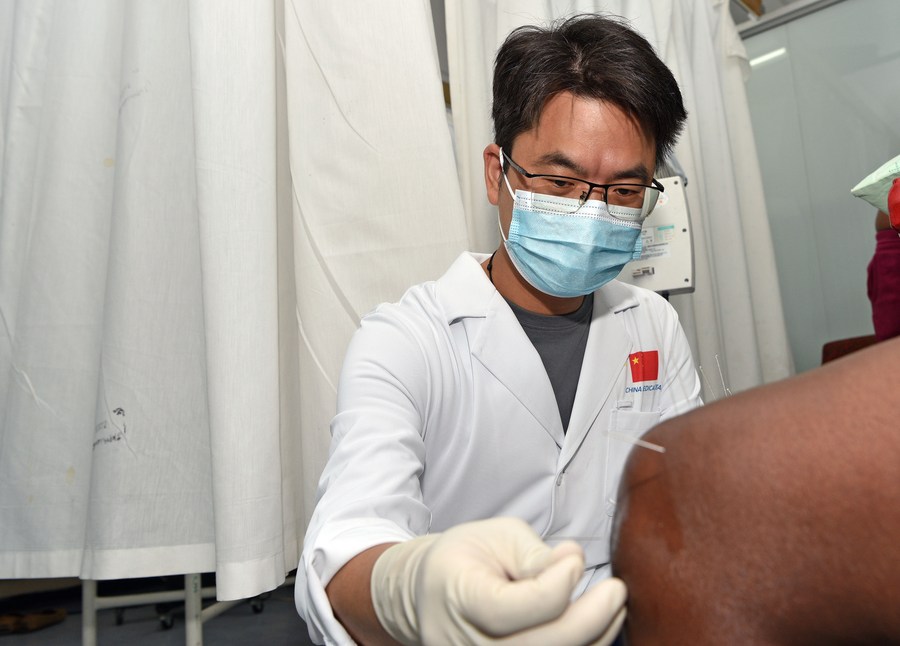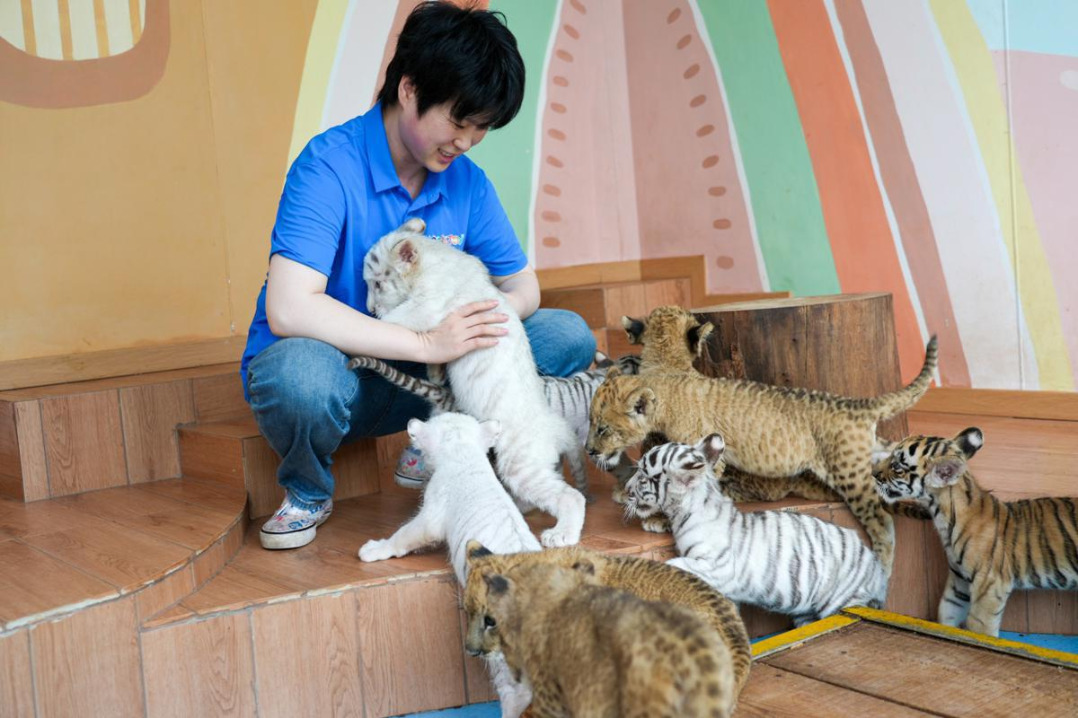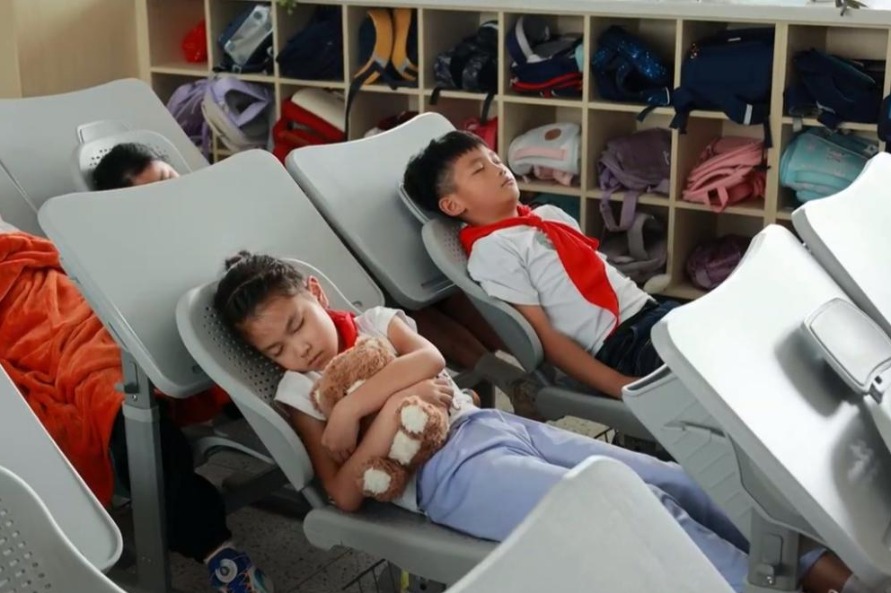TCM builds momentum worldwide
Practice reaches 196 countries and regions as expansion accelerates


Traditional Chinese medicine has spread to 196 countries and regions across the world, and more than 100 types of TCM drugs have obtained registration in countries involved in the Belt and Road Initiative, with the market size estimated to exceed 4.8 trillion yuan ($669.7 billion) this year, China's health minister said on Monday.
Lei Haichao, minister of the National Health Commission, said that acupuncture is now recognized in 113 member states of the World Health Organization. Also, a TCM technology committee under the International Organization for Standardization, or ISO, has issued 119 TCM-related standards.
Lei made the statements in a signed article that called for strengthening efforts to ensure that TCM can better benefit people around the world. It was released by Study Times, a newspaper administered by the Party School of the Communist Party of China Central Committee.
The minister highlighted the importance of deepening cooperation with the WHO, the ISO and other international organizations, and advancing the development of TCM standards. He said that more high-quality overseas TCM centers, clinics or training facilities will be established in key Belt and Road countries and African nations.
Efforts will also be made to explore the establishment of TCM hospitals overseas and ensure that all Chinese medical aid teams dispatched abroad include TCM practitioners.
Lei also proposed collaborating with the WHO to build an international clinical trial registration platform for traditional medicine. The objective is to cultivate a batch of competitive TCM companies and brands with high added value to drive the entire industrial chain development of TCM.
Domestically, China has built over 100,000 TCM medical facilities and has 1.14 million TCM practitioners, according to Lei.
About 92 percent of large public hospitals have established their own TCM clinics, and over 40,000 community healthcare centers and rural clinics are capable of delivering TCM services.
Thanks to increased efforts in advancing innovation in TCM research, Lei said, significant progress has been achieved in tackling some complicated diseases. Examples include using arsenic trioxide to treat acute leukemia and employing the classic TCM principle of activating blood and resolving stasis to alleviate coronary heart diseases.
Lei called for the ramping up integration of traditional and modern medicine with an open and inclusive mindset. For instance, it is important to interpret the mechanism of TCM through modern science approaches, he said.
He also called for extending the discovery of traditional medicinal resources to a global scale and strengthening China's cooperation with countries and regions that have diverse climates and distinct geographical ecosystems.
- Huangyan Island National Nature Reserve gets official go-ahead
- A capable assistant in classroom -- Chinese educators embrace AI
- China rolls out homegrown 9-valent HPV vaccine
- New coal-to-gas pipeline project begins in Xinjiang
- Horgos Port exports a record 214,000 vehicles in first 7 months of this year
- Defense leaders from over 100 countries to attend Xiangshan Forum





































